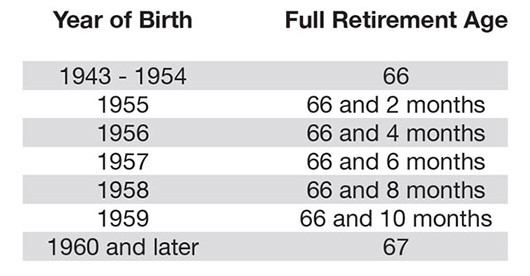Choosing a Retirement Plan that Fits Your Business

One survey found that 79% of small business owners expect at least some of their retirement income to come from tax-advantaged retirement savings accounts.1 If you have yet to develop a retirement plan for your business, or if you’re not sure the plan you’ve chosen is the right one, here are some things to consider.
How much can my business afford to contribute?
The cost of contributions may be managed by the plan type.
A simplified employee pension plan (SEP) is funded by employer contributions only. SEP contributions are made to separate IRAs for eligible employees.2
Savings Incentive Match Plan for Employees of Small Employers (SIMPLE) IRAs blend employee and employer contributions.3 Employers either match employee contributions up to 100% of the first 3% of compensation or contribute 2% of each eligible employee’s compensation.
A 401(k) is primarily funded by the employee; the employer can choose to make additional contributions, including matching contributions.4
What plan accommodates high employee turnover?
The cost of covering short-tenured employees may be reduced by eligibility requirements and vesting.
With the SEP-IRA, only employees who are at least 21 years old and have been employed in three of the last five years must be covered.
The SIMPLE IRA must cover employees who have earned at least $5,000 in any prior two years and are reasonably expected to earn $5,000 in the current year.
The 401(k) and defined benefit plan must cover all employees who are at least 21 years of age. Under the SECURE Act, these retirement plans are open for employees who have either worked 1,000 hours in the space of one full year or to those who have worked at least 500 hours per year for three consecutive years.
Vesting is immediate on all contributions to the SEP-IRA, SIMPLE IRA and 401(k) employee deferrals, while a vesting schedule may apply to 401(k) employer contributions and defined benefits.
Do I want to maximize contributions for myself (and my spouse)?
The SEP-IRA and 401(k) offer higher contribution maximums than the SIMPLE IRA. For those business owners who are starting late, a defined benefit plan may offer even higher levels of allowable contributions.
My priority is to keep administration easy and inexpensive.
The SEP-IRA and SIMPLE IRA are straightforward to establish and maintain. The 401(k) can be more onerous, but complicated testing may be eliminated by using a Safe Harbor 401(k). Generally, the defined benefit plan is the most complicated and expensive to establish and maintain of all plan choices.
1. Gallup, March 16, 2017. Most recent survey available.
2. Like a Traditional IRA, withdrawals from a SEP-IRA are taxed as ordinary income and, if taken before age 59½, may be subject to a 10% federal income tax penalty. Under the SECURE Act, in most circumstances, once you reach age 72, you must begin taking required minimum distributions.
3. Like a Traditional IRA, withdrawals from a SIMPLE IRAs are taxed as ordinary income and, if taken before age 59½, may be subject to a 10% federal income tax penalty. Under the SECURE Act, in most circumstances, once you reach age 72, you must begin taking required minimum distributions.
4. Under the SECURE Act, in most circumstances, you must begin taking required minimum distributions from your 401(k) or other defined contribution plan in the year you turn 72. Withdrawals from your 401(k) or other defined contribution plans are taxed as ordinary income, and if taken before age 59½, may be subject to a 10% federal income tax penalty.
To learn more about CapSouth Wealth Management and the services we provide, contact our office at 800.929.1001 or visit our website at www.capsouthwm.com
CapSouth Wealth Management – Dothan, AL, McDonough, GA, Charlotte, NC
The content is developed from sources believed to be providing accurate information. The information in this material is not intended as tax or legal advice. It may not be used for the purpose of avoiding any federal tax penalties. Please consult legal or tax professionals for specific information regarding your individual situation. This material was developed and produced by FMG Suite to provide information on a topic that may be of interest. FMG, LLC, is not affiliated with CapSouth Wealth Management. The opinions expressed and material provided are for general information and should not be considered a solicitation for the purchase or sale of any security. Copyright 2019 FMG Suite.
CapSouth Partners, Inc., dba CapSouth Wealth Management, is an independent Registered Investment Advisory firm. CapSouth does not offer tax, accounting or legal advice. Consult your tax or legal advisors for all issues that may have tax or legal consequences.






